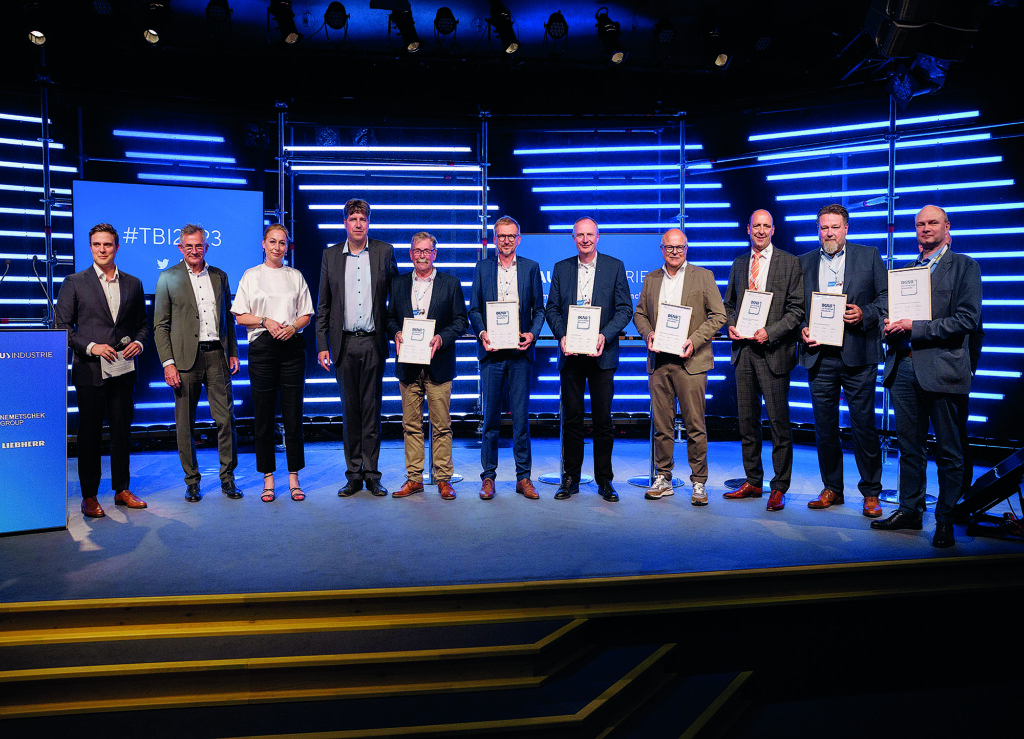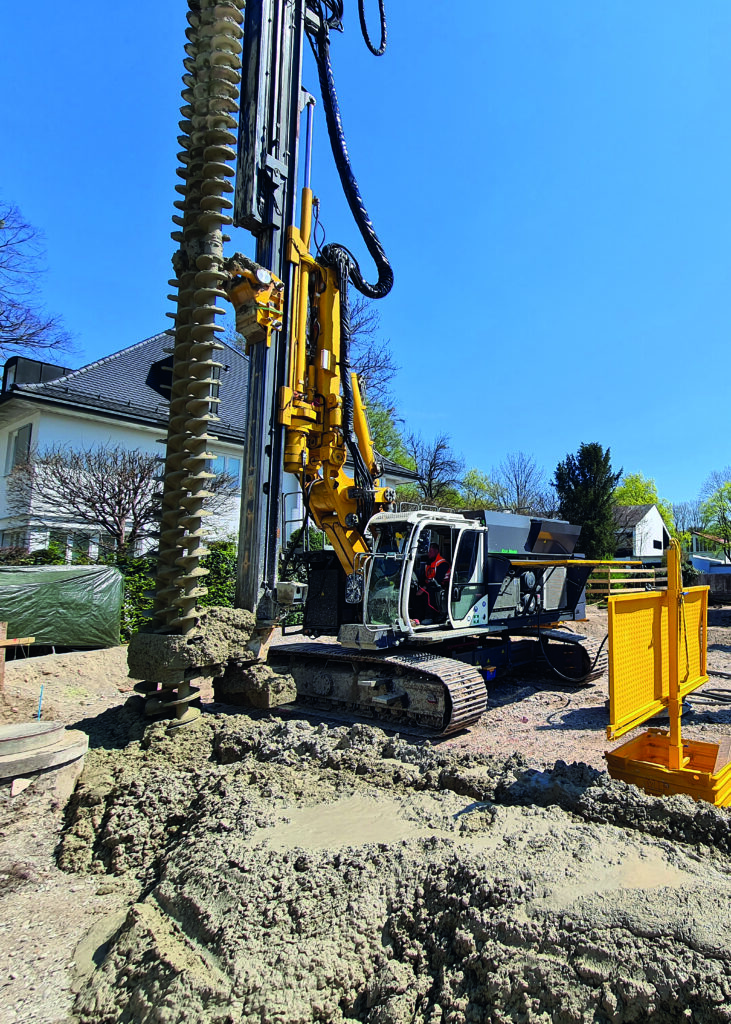The topic of sustainability for specialist foundation engineering is ubiquitous in the construction industry. This was demonstrated once again at the German Construction Industry Day in Berlin, which the Federation of the German Construction Industry (HDB) held on June 14th. After a statement from HDB President Peter Huebner, guests were able to hear construction policy opinions from Federal Minister of Construction Klara Geywitz and Federal Minister of Finance Christian Lindner as well as the opposition.

For the 75th anniversary of the Construction Federation, this year’s industry conference awarded specialist foundation engineering projects with a DGNB certificate for sustainable construction sites for the first time – recipients included a project executed by BAUER Spezialtiefbau. Michael Kellner, Parliamentary State Secretary of the Federal Ministry for Economic Affairs and Climate Action, handed over the certificate to Frank Haehnig, CEO of BAUER Spezialtiefbau GmbH.
“We are very proud to actively participate in this crucial development for specialist foundation engineering and feel very honored to receive this award”
said Frank Haehnig.
The overarching goal of the certification is to make the sustainability of construction activities measurable and assessable using recognized and verifiable criteria.
Bauer Spezialtiefbau kicked things off back in November 2020 as part of a webinar in Berlin on the topic “Construction needs sustainable concepts – specialist foundation engineering sets new benchmarks”. Dr. Christine Lemaitre, CEO of the DGNB, participated in that panel discussion as a guest – thus the idea of DGNB certification as a benchmark was born.
Four criteria as the basis for certification
“If we are serious about protecting the climate and conserving resources in construction, it is crucial that we don’t get stuck on regular construction – instead, we also have to focus on infrastructure-related construction projects”
said Dr. Christine Lemaitre in a DGNB press released on June 15. The DGNB certification for specialist foundation engineering is oriented on the regular DGNB system for sustainable sites and includes the four points of construction organization, resource conservation, health and social elements as well as the quality of construction work. As part of the criteria, measures taken by the site to prevent an impact on the local environment are reviewed, taking into account the use of construction and transport equipment along with the degree of earth movement and the resulting possibilities for reuse and recycling.
With a view to conserving resources, the clear focus is on reducing emissions and saving resources in the area of energy and drinking water as well as reusing and recycling construction materials. In the area of health and social aspects, the primary concern is the health and safety of employees as well as internal project communication and external communication with the public. In contrast, the quality of construction work encompasses site management, quality assurance for the construction products used and as-built documentation.
To receive DGNB certification, a number of these criteria must be fulfilled. These make up 35% of the evaluation, while various variable factors make up 30%. Thus a total fulfilment of at least 65% must be achieved overall in order to receive a DGNB certificate for a specialist foundation engineering project.
Bauer Spezialtiefbau project in Munich recognized
This new system for awarding certificates was developed in collaboration with various companies – including BAUER Spezialtiefbau GmbH – and was tested during pilot projects for the first application of the system. In this process, Bauer Spezialtiefbau’s project involving the new construction of a residential building with underground garage on Chamissostrasse in Munich received positive attention across the board and was recognized by the DGNB during the Construction Industry Day.

Apart from demolition and dismantling of the existing building as well as dewatering, the work by Bauer on this project included certified specialist foundation engineering works in the form of two retaining structures. What makes them unique: They were constructed using anchoring work and geothermally activated Mixed-in-Place walls (MIP) with embedded beams and tie-backs. During the geothermal activation of the foundation elements, they were equipped with geothermal probes. Using solar collectors, for instance on rooftops, energy can be obtained in the summer months, fed into the ground via the installed geothermal probes and stored. In the winter, this energy can be extracted from the ground again and used to heat buildings, for example. Bauer carried out the work on Chamissostrasse in Munich from March to June of this year.


 Copyright 2017-2023 All rights reserved.
Copyright 2017-2023 All rights reserved.